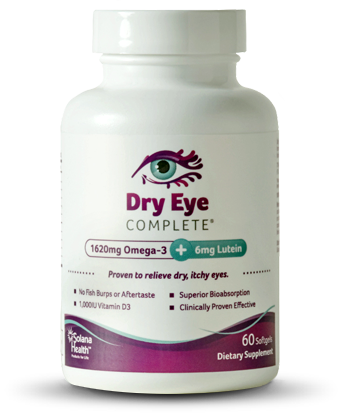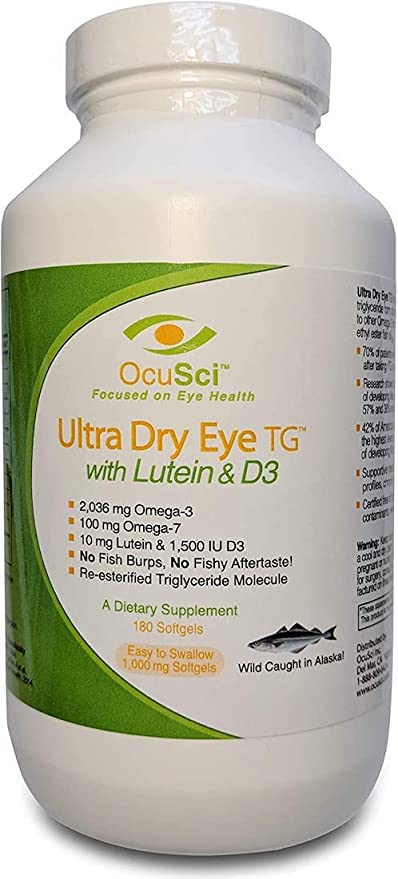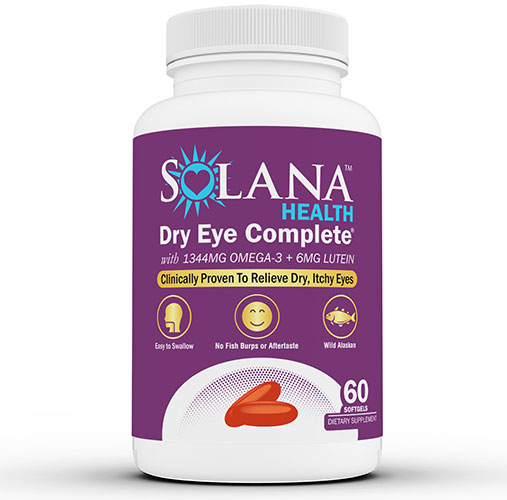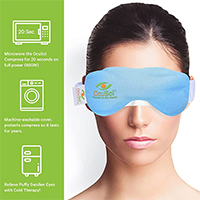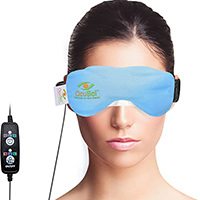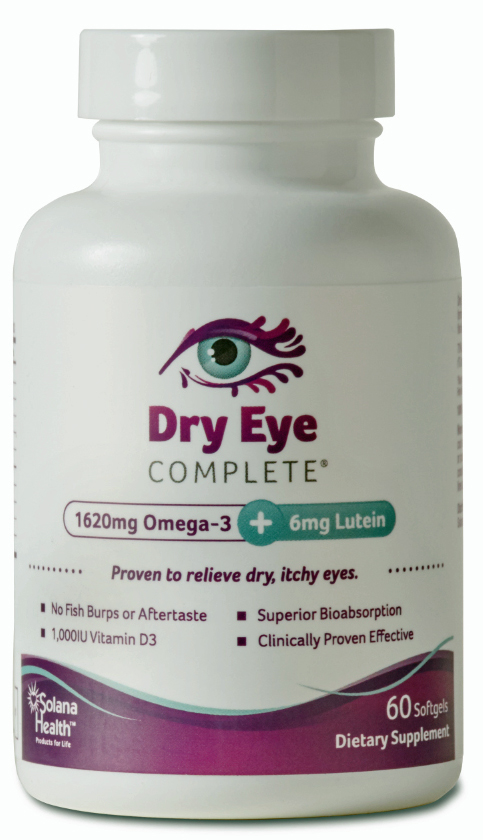Traditionally, women who go through or have gone through menopause experience dryness in some intimate places. However, it also happens in an unexpected area of the body: the eyes. Few people know that dry eye syndrome (DES) is very common in post-menopausal women. In fact, around 60% of women experience it. Yet, only 16% of these women know that it is because they went through menopause, research has shown.
It is believed that certain hormones can cause DES, because the tissues of eye need hormones in order to create tears. A lot of women experience light sensitivity, dryness, burning, blurred vision, gritty eyes and more. This often makes the eyes look teary, but it is actually a symptom of dry eye.
The Research
Significant research is currently taking place into the link between menopause and DES and, so far, it has been found that hormone replacement therapy may cause it. This was following a research study of some 25,665 women by the Women’s Health Initiative, which found that estrogen in particular could be linked to DES. However, exact causality could not be found.
Another study, conducted over the telephone, looked at 304 women, aged between 34 and 50. This was conducted by the International Communications Research for the Society for Women’s Health Research. They found that:
- 62% of women had DES.
- 16% of these knew that dry eye can be caused by menopause.
- Just under 59% sought medical advice about their dry eyes.
- 58% had tried to treat their dry eyes with over the counter remedies.
Dry Eye Symptoms
A lot of symptoms are associated with dry eyes, and the condition can be caused by a huge variety of things, above and beyond menopause. Some of the most common symptoms include:
- Gritty, scratchy feelings, as if there is a foreign body in the eye
- Itchiness
- Having very tired eyes early on in the day
- Tears running out of the eyes
- Stringy mucus
- Irritation from air movement, wind and smoke
- Blurry vision
- Sensitivity to light
- Finding it hard to wear contacts
Often, these symptoms are mild and simple rest can help to alleviate them. However, it is always important to seek medical advice. This is because, if left untreated, it could lead to scarring on the cornea and ulcers. Furthermore, you are more likely to develop an infection of the eye.
Understanding Dry Eye and Its Causes
Dry eye can develop due to one of two reasons:
- The Meibomian glands, found on the inside of the eyelids, do not produce sufficient oil.
- The tears evaporate too quickly.
In many cases, both reasons are present. The above two reasons, in turn, are usually caused by one or more of the following:
- Living or working in an environment that is very dry
- Not blinking enough when working behind computer screens
- Having had LASIK eye surgery
- Wearing contact lenses
- Having a poor diet
- Certain types of medication
- Medical conditions like arthritis, diabetes, Sjogren’s syndrome, and lupus
Hormonal Changes
The above list demonstrates why DES is so common in people across all ages, genders and ethnicities. The list essentially describes the way most of us now live our lives. However, it is a known fact that post-menopausal women are at particular risk of developing DES. The question then becomes why this happens and the answer seems to be, as always, that it is because of hormones.
Every person is affected differently by their hormones, as this is mainly down to genes, lifestyle and diet. However, hormones are vital to the health of your eye, and there have now been a number of studies that showed the Meibomian gland has receptors for both estrogen and testosterone. Hence, there must be a link between sex hormones and tears.
If a woman has high levels of testosterone before she goes through menopause, she will produce fewer tears. Similarly, if she has high levels of estrogen, she will produce more tears. However, once she reaches menopause, this turns around completely. More estrogen means fewer tears, more testosterone means more tears. It is not clear why this happens, however.
It is believed that androgen deficiency, which means a lack of testosterone, can lead to DES. It is for this reason that hormone replacement therapy and its effects on dry eye were studies. Interestingly, when the study (mentioned above) was started, the expectation was that dry eye would be alleviated thanks to HRT. What was actually found, however, was that it increased the chance of developing it.
What Can Be Done?
There are a number of things that you can do, as a woman, to lower your chances of developing DES. These include:
- Not having LASIK eye surgery or PRK, as this can make it worse
- Seeking medical advice for dry eyes as soon as you experience them
- Following the treatment prescribed to you for your dry eyes
- Being aware of any medication you take for other conditions, as these may make you dry eyes worse. Antidepressants and diuretics have this as a common side effect.
- Have an allergy test completed to see if that could contribute to your dry eye
- Change your environment so that it is properly humidified
It is very important that you find out exactly what is causing your dry eyes. Through tests, doctors and ophthalmologists will be able to pinpoint one of four things:
- Your production of tears is inadequate.
- Your tear film contains irritating substances.
- Your tears evaporate too quickly.
- Your lacrimal gland is inflamed.
Your treatment will be determined depending on which one (or more) of the above you suffer from. Artificial tears tend to be very beneficial for options 1 and 2. Warm compresses and specific types of medication tend to be more beneficial for the third scenario.
Most post-menopausal women, however, suffer from an inflammation of the lacrimal gland. Medication such as Restasis exists in order to reduce inflammation, while at the same time improving the quality of the tears and increasing its production. This has been found to be one of the most effective medications for DES in post-menopausal women, in fact.
If your eyes excrete the tears too quickly, your doctor may plug the punctum, which is where your tears drain from. This means the eyes will stay dry and properly lubricated. A punctal plug is a microscopic device, meaning you can’t see it and can barely feel it. Usually, this will have to be put in place by a medical professional, although some plugs now exist that you can use at home.
It is equally important that you, as a post-menopausal woman, take steps to allow your eyes to relax and recover. Some of the things that you could do in order to avoid DES from happening include:
- Lowering the height of your computer screen.
- Not being near high-air flow vents or other types of vents. In your car, make sure that your vents do not touch your eyes either.
- Use over the counter artificial tears, but try to avoid those that have preservatives in them. In the long run, these have been found to actually increase dryness overall.
- If you ever fly, make sure you use drops before you get on board, and again as soon as you disembark the craft.
DES is very uncomfortable, but not life-threatening. There are also many natural, over the counter remedies that can be used to find relief from the symptoms and thereby increase overall quality of life. What women should look for is something that helps in terms of tear lubrication, stops the outflow and evaporation of tears, and reduces inflammation of the eyelids.
Resources and References:
- Hormone Replacement Therapy and Dry Eye Syndrome – HRT for dry eyes. (JAMA)
- Women’s Health Source: Menopause and Dry Eye Syndrome – Dry eyes and menopause. (Main Life Health)
- Dry Eyes Caused by Hormone Problems – Hormones and dry eyes. (WebMD)
- Dry Eye and Post-Menopausal Women – Dry eyes and menopause. (UW Health)
- Dry Eyes and Menopause in Women – Dry eyes and menopause. (Eye Doctor Guide)
- Hormones in Dry-Eye: A Delicate Balance – Hormones and dry eyes. (Review of Ophthalmology)
- Menopause and Eye Health – Menopause and the eyes. (The North American Menopausal Society)
- 84% of Menopausal Women with Dry Eye Symptoms Are Unaware that the Condition Is Linked to Menopause – Menopause and dry eyes. (Society for Women’s Health)

